Mind Your English: The Indian English Express
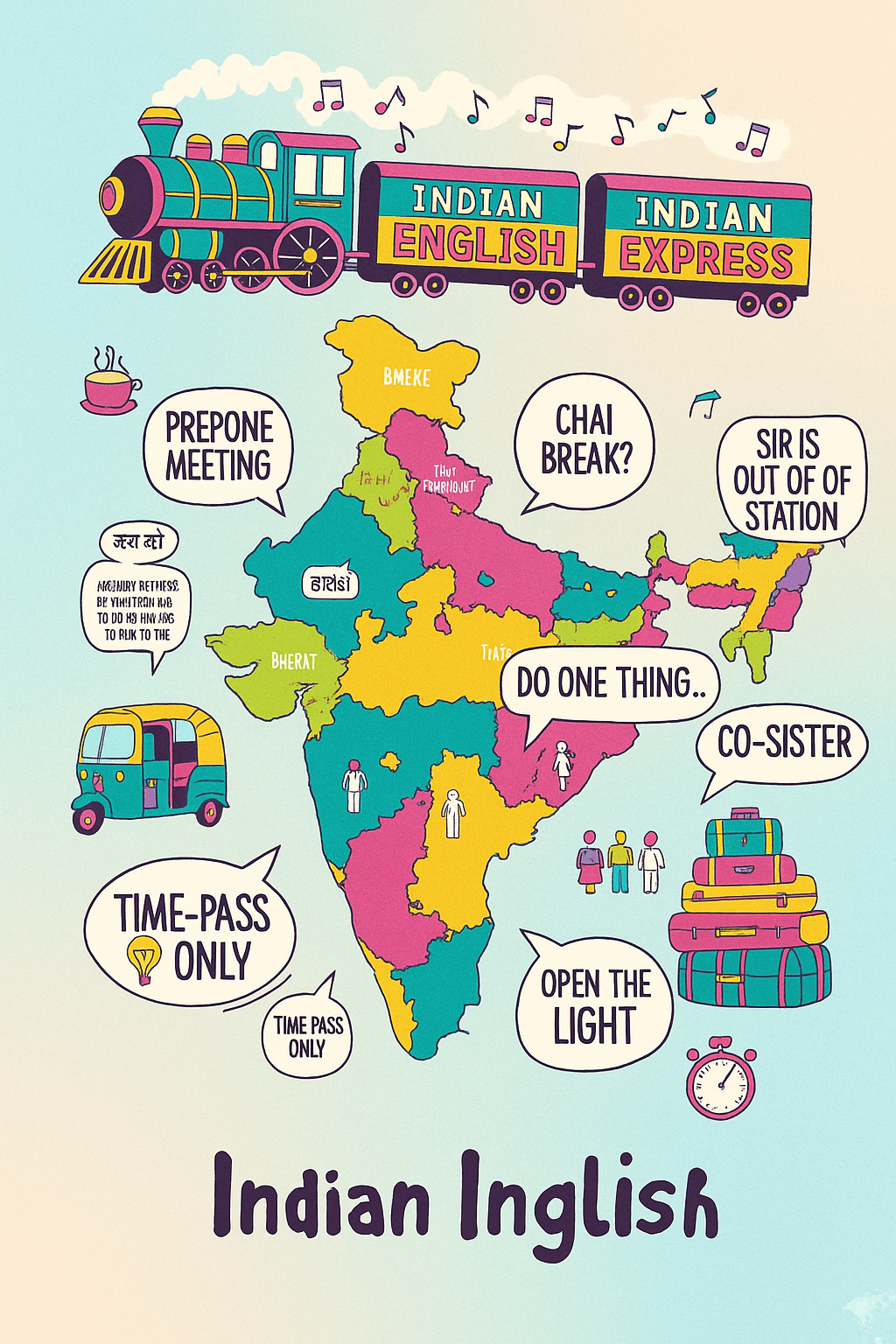
Mind Your English: The Indian English Express begins with a single platform – the convent classroom. From “preponing” meetings in Delhi to “opening the light” in Kochi, this train ride captures how we’ve made the Queen’s English kneel before the Republic’s jugaad spirit.

The Boarding Point – The Convent Platform
I boarded this journey long ago, wearing a neatly ironed uniform and carrying a dictionary heavier than my tiffin. Those nuns at school always reminded us to “mind our P’s and Q’s” and speak in propah British English. However, life had other plans. As India moved forward, so did her English – taking detours through states, accents, and a thousand tongues.
Northward Bound – Where English Meets Bhangra Beats
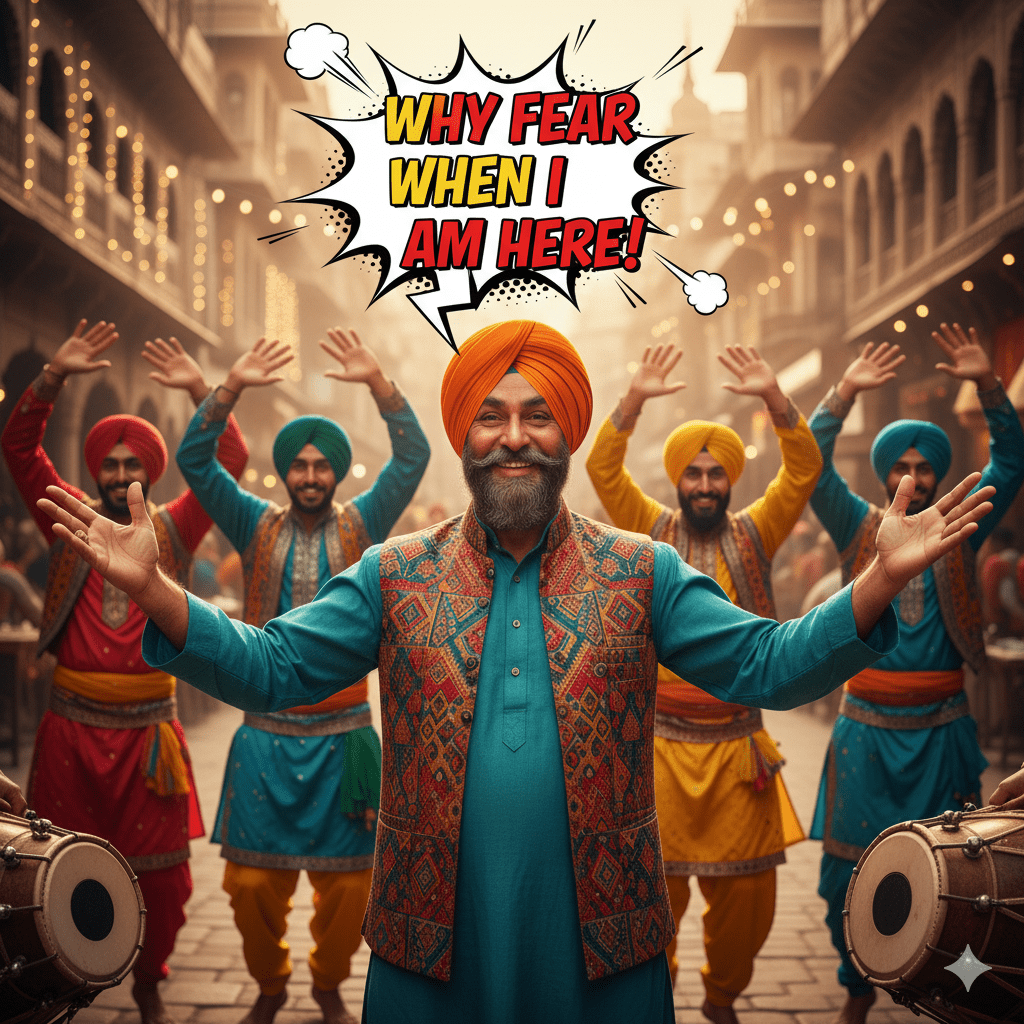
As the train chugs into Punjab and Haryana, English starts wearing a turban. Punjabis, after all, don’t just speak – they perform! Every sentence carries volume, rhythm, and tadka. “Why fear when I am here?” they declare, chest out and chin high. Meanwhile, in Delhi, we “prepone” meetings and “pass out” of college (without fainting, mind you). And of course, no conversation ends without a confident, “Don’t take tension, yaar!”
Gradually, as you move towards Himachal and Jammu, politeness meets pace – “Come only, na” becomes both an order and an invitation. It’s English on mountain time: slow, polite, and perfectly chilled.
Westward Ho! – The Mumbai Masala of Words
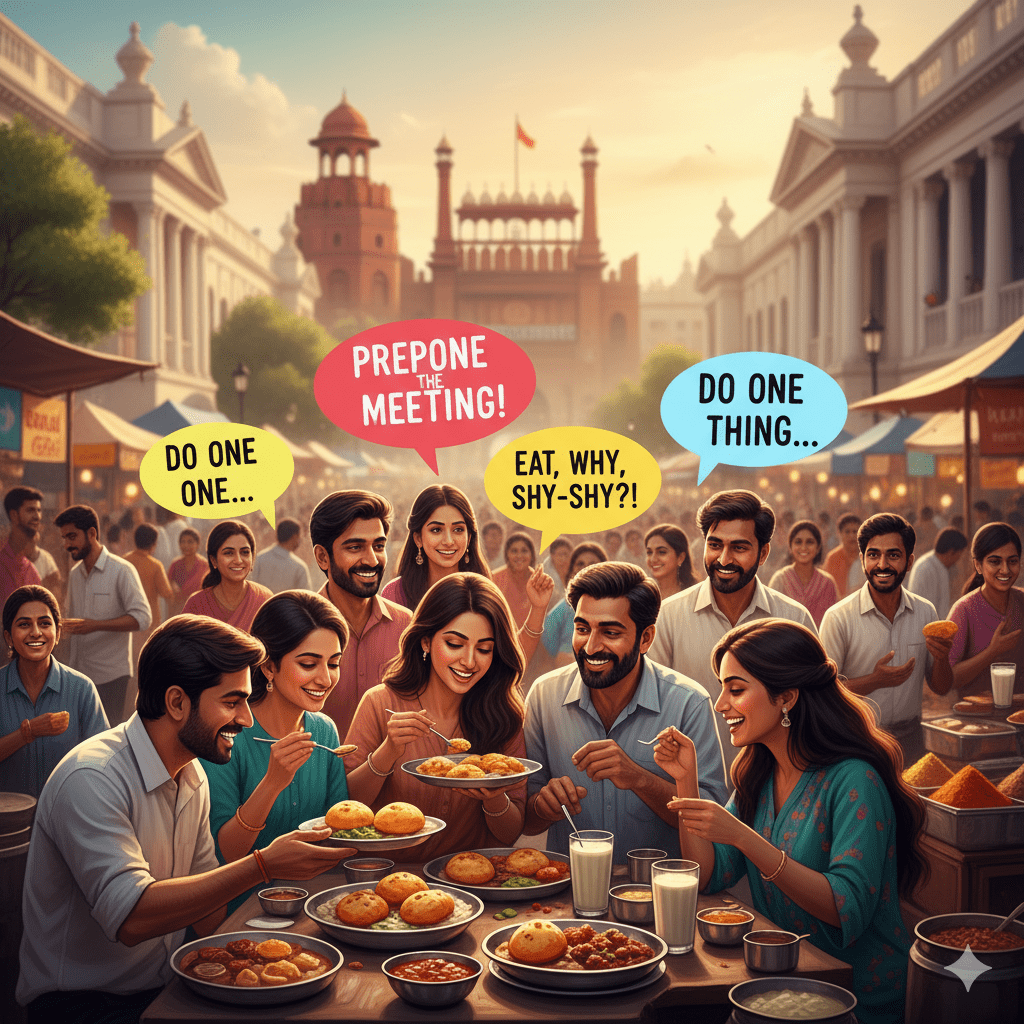
Next stop, Amchi Mumbai! The city that never sleeps also never stops remixing English. “Full tight party scene, boss!” or “Timepass only, re!” – both capture the city’s filmi flair. In Gujarat, meanwhile, English becomes extra polite and businesslike. “Do the needful” sounds like a transaction waiting for profit. Furthermore, Mumbai’s language swings like its skyline – part Hindi, part English, all heart. From auto drivers to ad agencies, everyone speaks with cinematic confidence. And if you listen closely, every “arre yaar” is a comma in the city’s never-ending story.
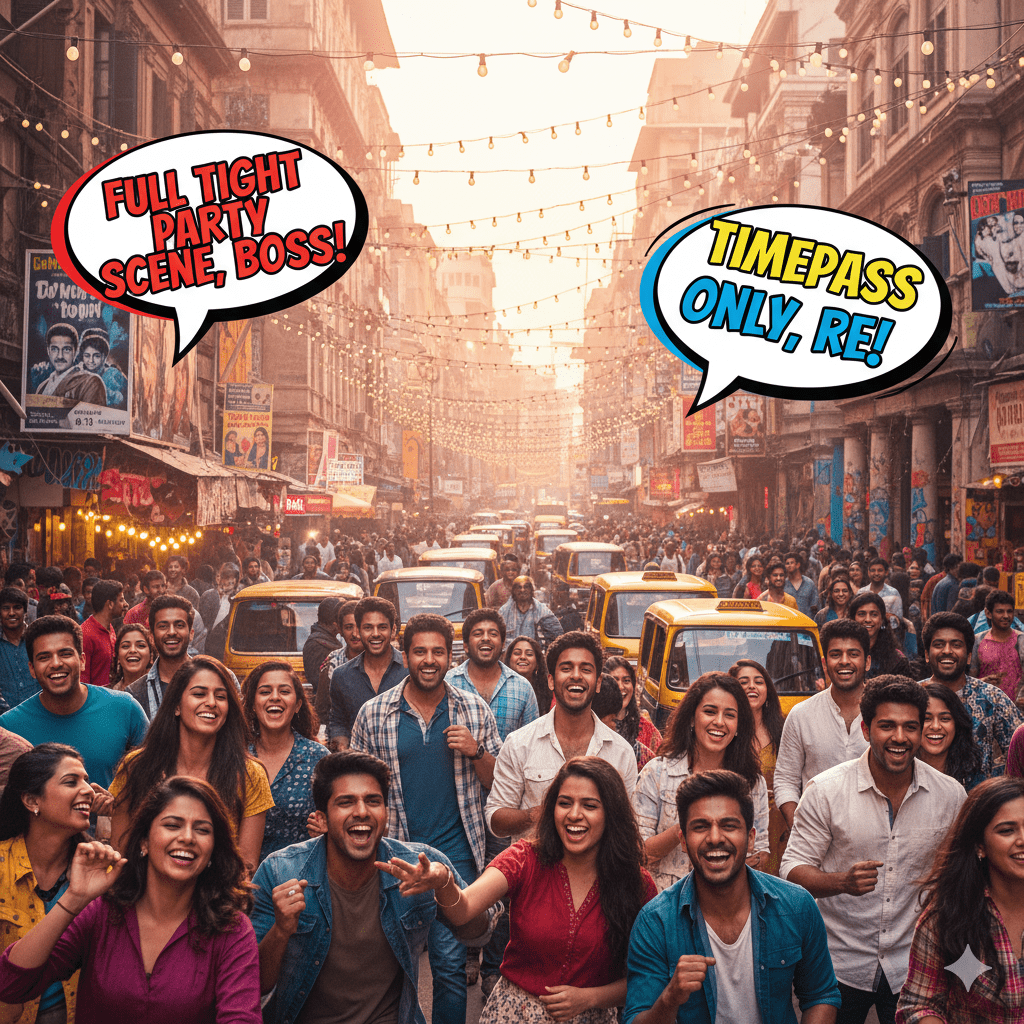
Down South – Grammar with a Filter Kaapi Twist
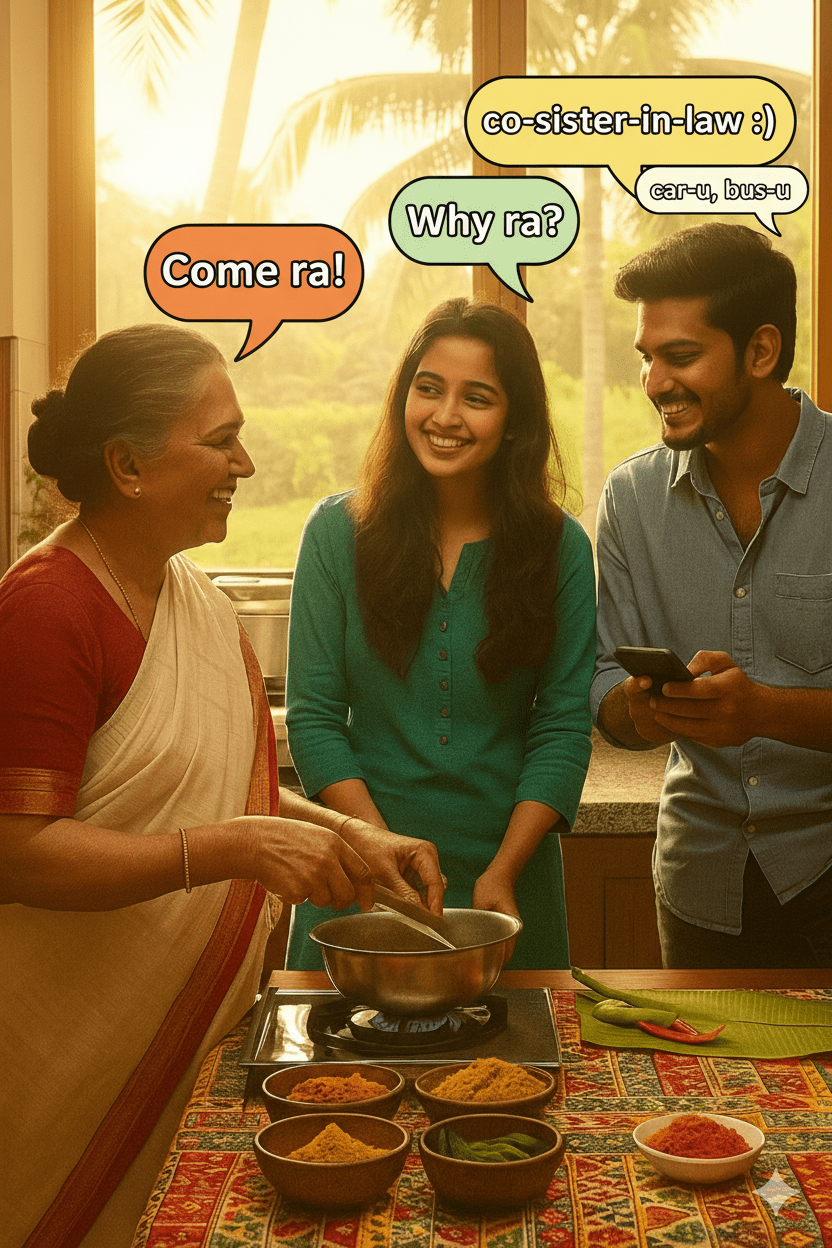
Now, the train rolls into the South, where English dons a lungi and starts multitasking. In Kerala, for instance, people confidently say, “Open the light” or “On the fan.” And it works! In Tamil Nadu, grammar bends like a Bharatanatyam pose. “I’m coming, da!” means “I’m going,” while “Your good name, please?” adds warmth to etiquette.
Then, we reach Andhra and Telangana – the land where English meets filter coffee, film dialogues, and friendly chaos. “Come, ra!” and “Why ra?” bounce through every conversation. Even pronunciation gets its own accent upgrade – “car-u,” “bus-u,” and “train-u” make perfect sense here.
Of course, living here has taught me patience – especially when someone says “Saar” instead of “Sir,” or proudly introduces their “co-sister-in-law.” Yet, it’s this blend of sincerity and sound that makes Southern English so endearing.
Eastward Bound – Adda, Chai, and Colonial Charm
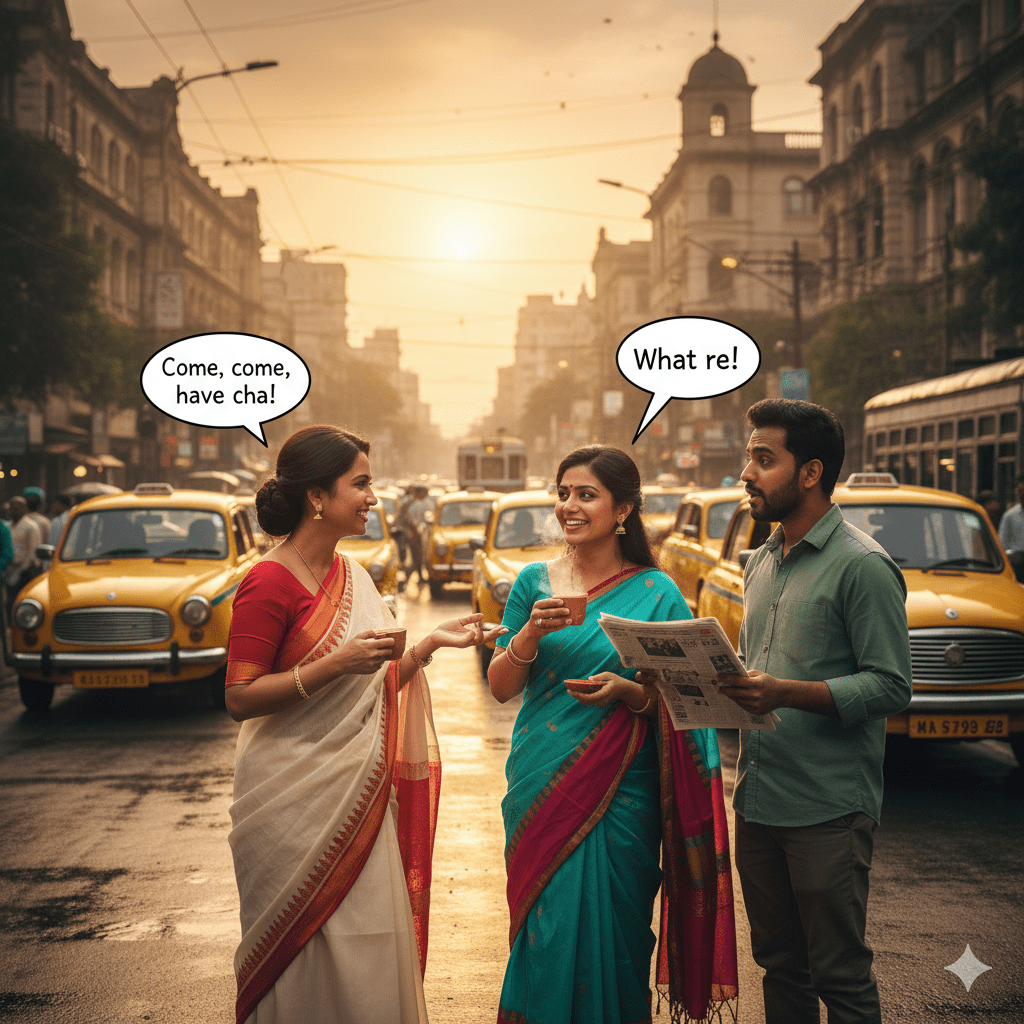
As the train curves east, the rhythm softens into poetry. In Kolkata, English flows with Tagore’s grace and a dash of theatre. “Ektu wait korbe?” (Will you wait a bit?) slips naturally into English sentences. Bengalis say “da” not for brotherhood but for camaraderie – “Coming, da!” means both “wait for me” and “I’m almost there.”
Meanwhile, in Odisha and the Northeast, English wears an accent as soft as rain. “You reached, no?” replaces “Did you reach?” – and honestly, it sounds warmer. In Assam, “I’ll reach just now” can mean anything from five minutes to next week. Flexibility is the real mother tongue here.
The Vocabulary Compartment – Where India Rewrites the Rules
Even our nouns have local passports. We don’t have trunks – we have “dickies.” Our offices have “godowns,” not warehouses. And when we’re “out of station,” we’re not at the railway platform – just away from town.
We don’t graduate, we “pass out.” And of course, we never really cancel anything – we simply “adjust.”
Ask for a “rubber” in an Indian classroom, and you’ll get an eraser, not a scandal. Forget your “tiffin,” and it’s a tragedy, not a missed lunch. Moreover, when someone says, “Do one thing,” brace yourself – it’s never just one thing. It’s a whole project in disguise.
And Yet… There’s Method in Our Madness
Despite the chaos, there’s genius in this linguistic remix. Our Indian English is not wrong; it’s alive. It adapts, it evolves, it dances between cultures. While the world may still debate whether chips are fries or crisps, we’ve already decided to enjoy both – with masala!
In essence, Indian English isn’t a dialect. It’s a declaration of independence. It’s our English – spoken in 1.4 billion accents, spiced with Hindi, marinated in nostalgia, and served with grammatical improvisation.
The Final Stop – Mind Your English, Celebrate Ours!
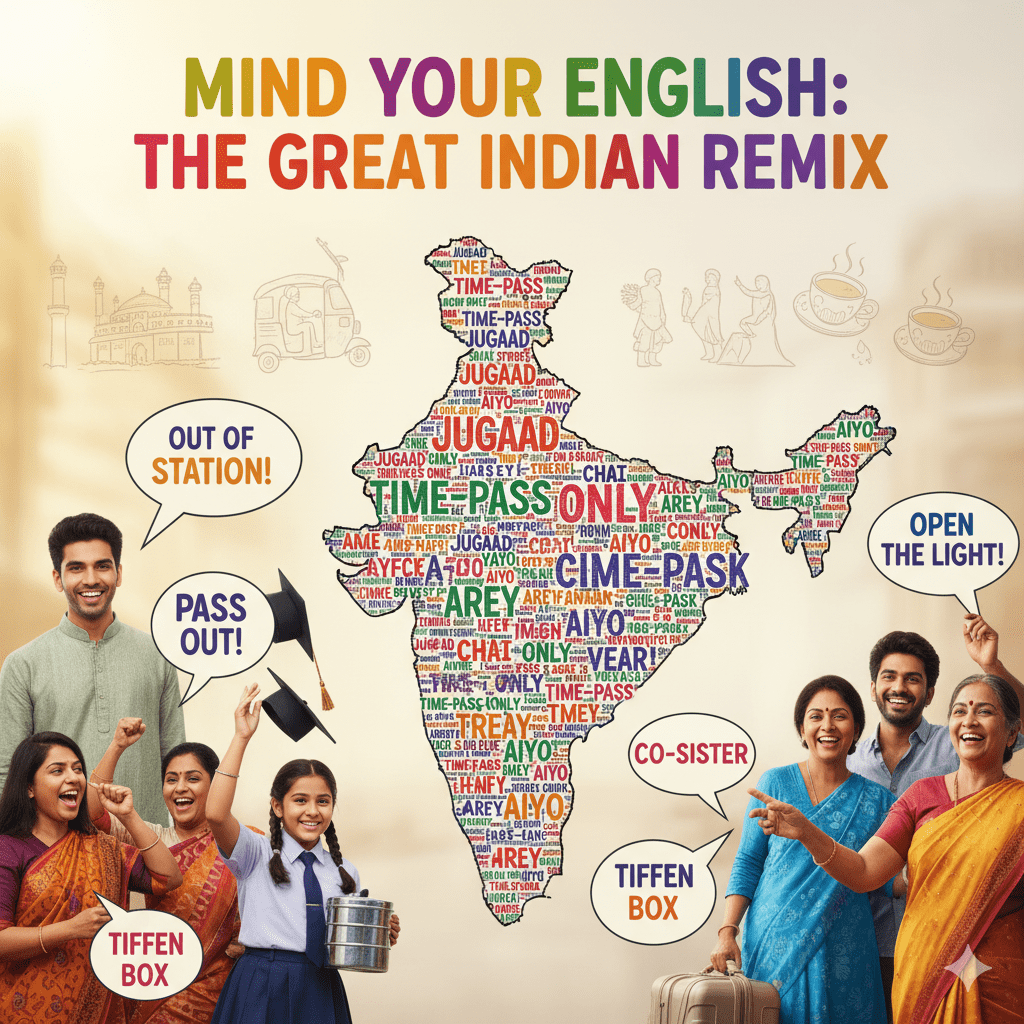
As the train slows down at the terminus, I can’t help but smile. From convent classrooms to cosmopolitan chaos, we’ve carried English across every platform of life – polishing, parodying, and personalising it along the way.
So yes, the Queen may have lent us her English, but India gave it rhythm, rhyme, and reason. Whether it’s “preponing” a meeting or “doing the needful,” we’ve proved that the language doesn’t rule us – we rule it.
And that, my fellow travellers, is the true joy of the Indian English Express – every stop, every accent, every “yaar” and “ra” telling its own delightful tale.
This post is a part of Blogchatter Half Marathon 2025
To Read Other posts of the Challenge, click below-



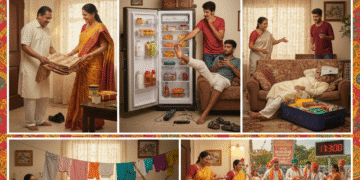

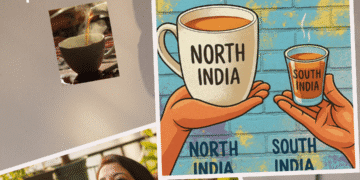
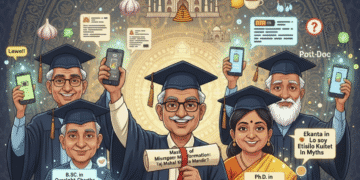



Your blog is a true hidden gem on the internet. Your thoughtful analysis and in-depth commentary set you apart from the crowd. Keep up the excellent work!